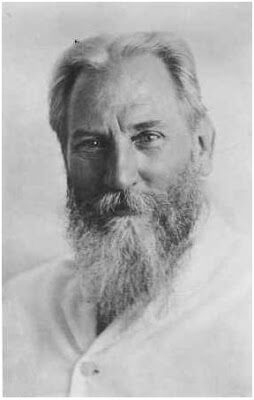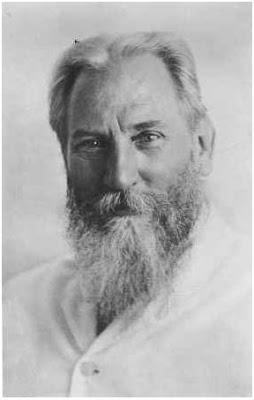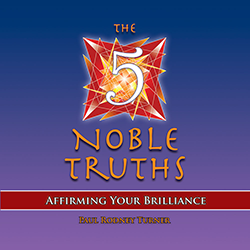For the soul, there is never birth nor death. Nor, having once been, does he ever cease to be. He is unborn, eternal, ever-existing, undying, and primeval. He is not slain when the body is slain.[1]
Nothing can kill the soul. In fact, according to the Gita, the soul was never born, but has always been. We are eternal beings, and that is why death feels so unnatural, and we have such a difficult time accepting it. The fact is: you never die, but rather, you, the soul that currently animates this physical body, live on forever. Our destination after “death” is determined by two factors: karma and desire.
How you act and the thoughts you accumulate in this life are gradually shaping your next body. Notice I did not say, “incarnation,” because the fact is that we may not incarnate, or “reflesh” into another physical body, but move on to a higher plane of consciousness where there is no need for a gross physical body. We may, in fact, attain our original spiritual form and return home to our source, the Godhead.
We can assume, however, that most of us will likely have to take another physical form after this body becomes uninhabitable. The type of body we get is fully determined by these two factors: karma and desire.
It is said in the Vedas that there are basically three layers to our existence in this world: A gross physical form made up of the five most basic elements: earth, water, fire, air, and ether; a subtle form consisting of mind, intelligence and ego; and finally a soul or consciousness which is the most subtle form of all. Since the soul is our core, we are addressing the two lower bodies here. Some esoteric books speak of a combined mind and intelligence as the source of the soul. However, it is important that we distinguish this spirit (astral) form from the higher vibrational form of the soul. There is a major difference. Whereas the soul is the driving force behind our very existence, the spirit body consisting of mind and intelligence, is the subtle vehicle that carries the soul to its next destination after the demise of the physical body. The physical body of earth, water, fire, air and ether, or more grossly, blood, muscle, bones, skin, hair, puss, bile, and mucus, etc., provides a medium for the soul to express itself in this one lifetime. Its existence is temporary and over time it goes through dramatic changes, finally returning to its most basic constitution of the five raw elements.The spirit body, on the other hand, lives on past so-called “death,” carrying the soul (consciousness) to its next destination. Depending on the condition of the spirit body, the soul either must reincarnate into a lower or higher birth in this physical world, or is able to move beyond the limitations of the five gross elements by resonating at a higher frequency of consciousness. In other words, the more conscious you are of your Self, the higher your desination.

“…the sub-planes must never be thought of as divided from one another in space, but rather as interpenetrating one another; so that when we say that a person passes from one subdivision to another, we do not mean that he moves in space at all, but simply that the focus of his consciousness shifts from the outer shell to the one next within it.”
The ultimate destination of the soul is to return to its energetic source, the Godhead, the highest and subtlest of all existences. To do this will require complete sanitization of the mind and intelligence so that they are vibrating on such a high frequency that the gross material elements cannot settle. At this stage, the soul sheds all gross and subtle bodies and realizes its full conscious existence wherein it regains its original spiritual body, mind, and intelligence. It is for this reason that the spiritual traditions recommend renunciation of the vices of this world. For by maintaining an attachment for physical objects and activities, we align our consciousness with the vibrations of the physical world and therefore must reincarnate to continually experience those things. However, the full meaning of renunciation is sometimes misunderstood by these same spiritual practitioners. Renunciation in the purest sense means to understand to whom everything belongs. Since we come into this world with no possessions and leave the same way, we cannot factually claim ownership of anything. The true “owner” must be the source of that thing’s creation, the Godhead, the original seed of existence. True renunciation involves understanding and acting on the knowledge that all belongs to the Godhead, aligning our consciousness with spiritual truths.
Get my new book, The 5 Noble Truths
HAVE YOU EVER FELT HOPELESS?
HAVE YOU EVER FELT POWERLESS? HAVE YOU EVER FELT BELITTLED?
Feelings of mediocrity or failure are all symptoms of false ego — a false identification with your outer shell. The 5 Noble Truths are here to set you free from the illusory shackles created by a mischievous mind. In your hands you hold the secret to happiness, peace and prosperity. INCLUDES unique affirmation yantras to aid in your meditation, all of which have been mathematically mapped to the most powerful magic square of the Sun!
By Paul Rodney Turner
FAQ
Q: What does it mean for the soul to be undying?
A: The soul being undying means it is eternal and indestructible. It was never born and will never die, continuing its existence beyond physical life.
Q: How does karma influence the soul’s journey?
A: Karma, the sum of one’s actions and intentions, shapes the soul’s future experiences and forms, determining its path after physical death.
Q: What role does desire play in reincarnation?
A: Desire influences the soul’s reincarnation by aligning it with specific experiences and forms that reflect its unfulfilled wishes and attachments.
Q: Can the soul achieve liberation from reincarnation?
A: Yes, the soul can achieve liberation by transcending material desires and attachments, ultimately reuniting with the Godhead.
Q: What is the significance of renunciation in spiritual practice?
A: Renunciation involves understanding that true ownership belongs to the Godhead, freeing the soul from material attachments and aligning with spiritual truths.
Q: How does the soul return to its source?
A: The soul returns to its source, the Godhead, by purifying its consciousness and shedding material and subtle bodies, achieving spiritual realization.




Leave a Reply
You must be logged in to post a comment.